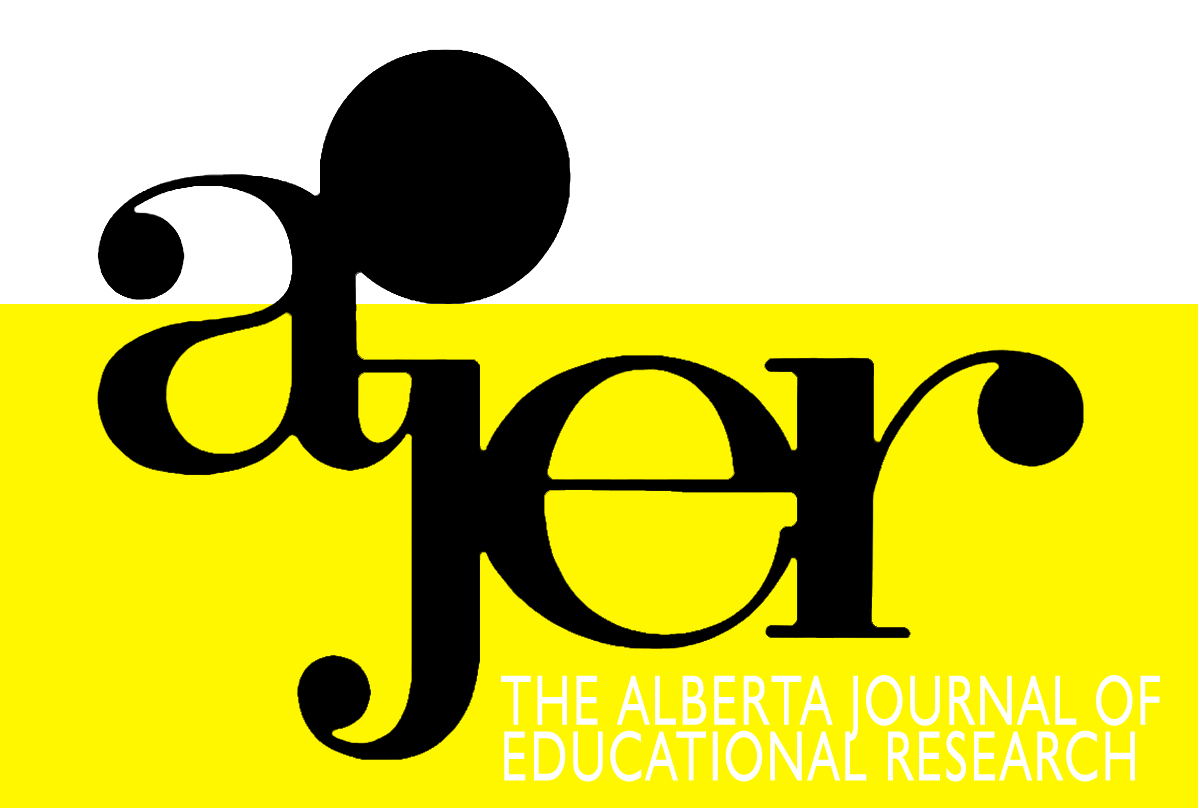Insight from Nunavut Educators Using Appreciative Inquiry
DOI:
https://doi.org/10.55016/ojs/ajer.v63i3.56156Keywords:
Keywords, positionality, Inuit students, Inuit education, Nunavut, appreciative inquiry, student success, Mots clés, positionnement, élèves inuits, éducation inuite, enquête appréciative, réussite des élèvesAbstract
The purpose of this paper is to document some successful features of public schools within Nunavut, according to the personal experiences of a group of 14 principals, vice-principals, and teachers. At the start of this paper, I explained my research positionality, depicting my personal history and background related to this study. From a total of 24 individual interviews, three themes surfaced: culturally vibrant programs, the array of professional development offered to educators, and student self-pride and involvement in school activities. To conceptualize the findings, I applied the 4-D cycle of appreciative inquiry (i.e., Discovery, Dream, Design, and Destiny) and explained how effective change can emerge within a school system. Appreciative inquiry is a change process of identifying what is working well, deciphering why it is working well, and emulating more of those positive attributes.
L’objectif de cet article est de documenter quelques-unes des caractéristiques des écoles publiques au Nunavut qui - selon les expériences personnelles d’un groupe de 14 personnes composé de directeurs, directeurs adjoints et d’enseignants - sont les mieux réussies. Je commence par expliquer mon positionnement comme chercheuse, évoquant ainsi mon histoire et mes antécédents personnels par rapport à cette étude. Trois thèmes ressortent des 24 entrevues individuelles : des programmes dynamiques sur le plan culturel, des possibilités en matière de développement professionnel pour les enseignants, et l’orgueil des élèves et leur et la participation aux activités scolaires. Pour présenter les résultats, j’ai appliqué la démarche des 4D de l’enquête appréciative (c.-à-d. découverte, devenir, décision, déployer) et j’ai expliqué comment le changement peut véritablement avoir lieu au sein d’un système scolaire. L’enquête appréciative est un processus de changement qui consiste à identifier les éléments qui fonctionnent bien, comprendre les raisons de leur efficacité et imiter davantage de ces aspects positifs.
Downloads
Published
Issue
Section
License
UNIVERSITY OF ALBERTA COPYRIGHT LICENSE AND PUBLICATION AGREEMENT
If accepted, authors will be asked to sign a copyright agreement with the following points:
A. Where there is any inconsistency between this Copyright License and Publication Agreement and any other document or agreement in relation to the same subject matter, the terms of this Agreement shall govern.
B. This document sets out the rights you are granting in relation to publication of your article, book review, or research note entitled (the “Article”) through inclusion in the academic journal titled Alberta Journal of Educational Research (the “Journal”) published through the Faculty of Education, representing the Governors of the University of Alberta (the “Journal Editor”).
C. There will be no payment to you for this publication and grant of rights. In consideration of the agreement to publish the Article in the Journal:
1. You are warranting that:
- the content of the Article is your original work, and its content does not contain any material infringing the copyright of others; or, where the Article is not entirely your original work, you have obtained all necessary permissions in writing to grant the rights you are giving in this agreement;
- the content of the Article does not contain any material that is defamatory of, or violates the privacy rights of, or discloses the confidential information of, any other person;
- the Article has not been published elsewhere in whole or in part, and you will not allow publication of the Article elsewhere without the consent of the Journal Editor;
- the names of all co-authors and contributors to the Article are:
2. You agree to license the copyright in the Article to the Journal Editor, on a worldwide, perpetual, royalty free basis; and to the extent required by the terms of this agreement. You shall retain the right at all times to be acknowledged as the/an author of the Article.
3. You further agree that the Journal Editor has the entitlement to deal with the Article as the Journal Editor sees fit, and including in the following manner;
- The right to print, publish, market, communicate and distribute the Article and the Journal, in this and any subsequent editions, in all media (including electronic media), in all languages, and in all territories, ing the full term of copyright, and including any form of the Article separated from the Journal, such as in a database, abstract, offprint, translation or otherwise, and to authorize third parties to do so;
- The right to register copyright of the Journal;
- The right to edit the Article, to conform to editorial policy as the Journal Editor sees fit.
4. If any co-author or contributor to the Article does not sign this agreement, the Journal Editor reserves the right to refuse to publish the Article.



